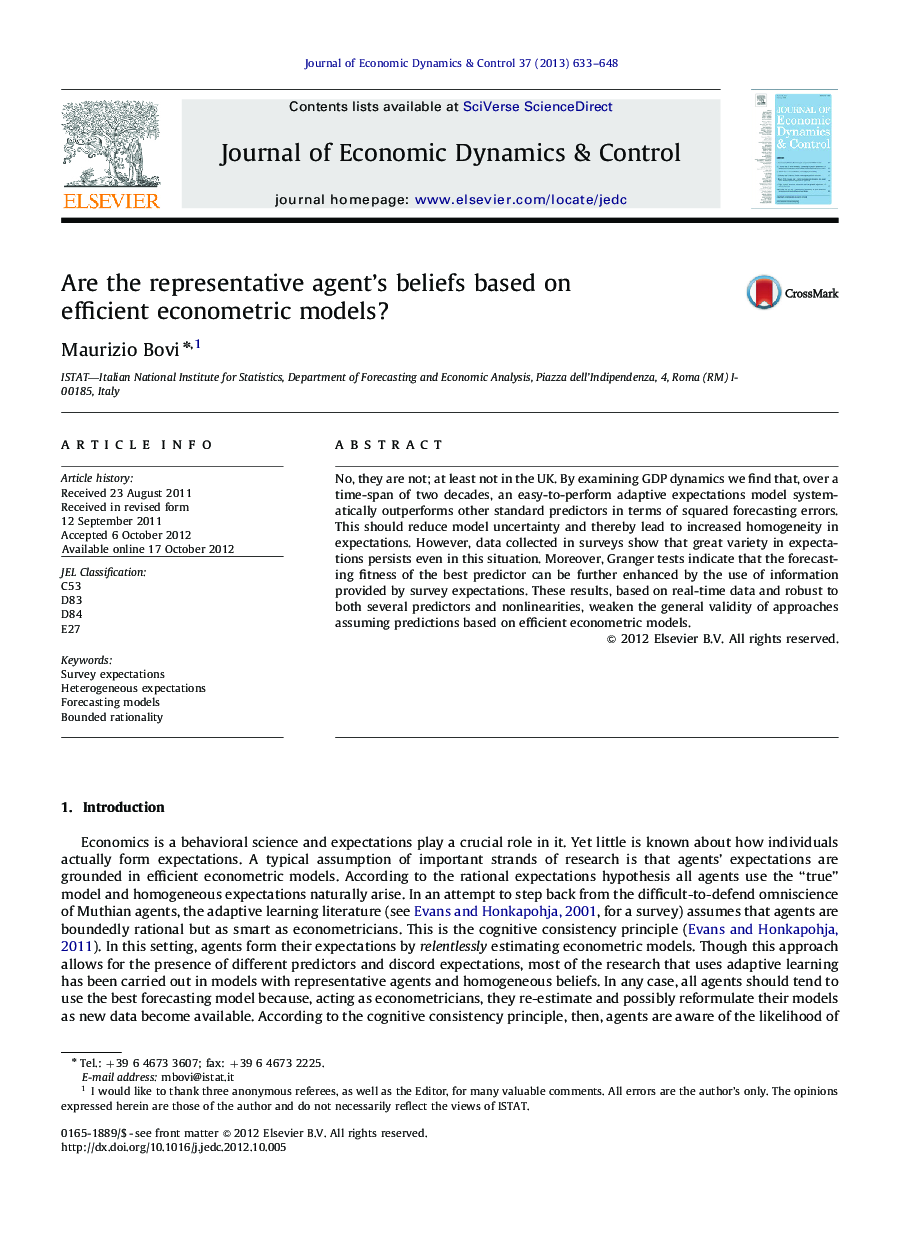| Article ID | Journal | Published Year | Pages | File Type |
|---|---|---|---|---|
| 5098751 | Journal of Economic Dynamics and Control | 2013 | 16 Pages |
Abstract
No, they are not; at least not in the UK. By examining GDP dynamics we find that, over a time-span of two decades, an easy-to-perform adaptive expectations model systematically outperforms other standard predictors in terms of squared forecasting errors. This should reduce model uncertainty and thereby lead to increased homogeneity in expectations. However, data collected in surveys show that great variety in expectations persists even in this situation. Moreover, Granger tests indicate that the forecasting fitness of the best predictor can be further enhanced by the use of information provided by survey expectations. These results, based on real-time data and robust to both several predictors and nonlinearities, weaken the general validity of approaches assuming predictions based on efficient econometric models.
Related Topics
Physical Sciences and Engineering
Mathematics
Control and Optimization
